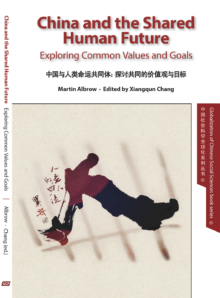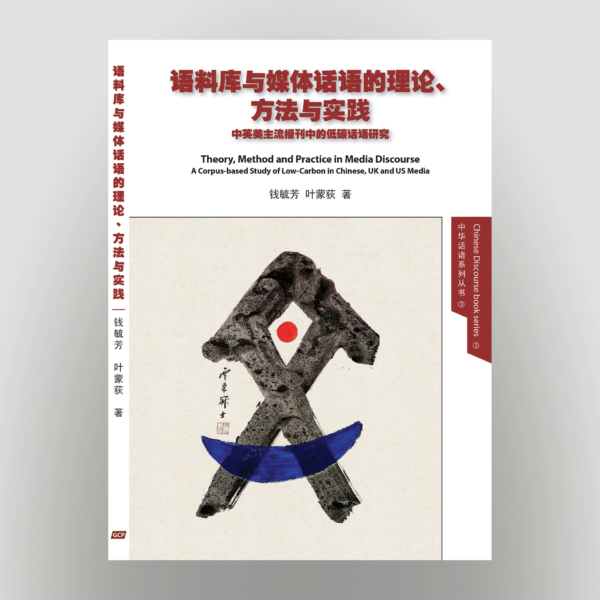In the China and the Shared Human Future, the distinguished UK sociologist and major scholar of Weber’s works, Martin Albrow, correctly follows central aspects of Weber’s mode of analysis. His questions are immediately apparent in Albrow’s big picture query: does an amenable, values-based infrastructure now support modern capitalism in American and Chinese civilizations? Investigating an array of their fundamental features, Albrow’s study manifests a Weberian dedication to the ‘interpretive understanding’ (Verstehen) of the other’s subjective meaning. It exhibits as well an unusual cognizance of East / West equality. By ameliorating the aggressive tone of today’s ‘East vs. West’ debate, this massive tome paves the way for a widening of the arena within which diligent and fair scholarship can flourish.
Stephen Kalberg, Professor of Sociology Emeritus at Boston University and Local Affiliate of the Center for European Studies, Harvard University, USA
The book covers many aspects of the various relationships between China and ‘the West’ as they play out on a global stage. Of course, the author, the editor, and no doubt many others, recognize the problematic nature of such an expression as ‘the West’, which is perhaps too capacious a category insofar as it contains many internal tensions. I am not going to address this issue in detail, but would like to note that when we talk about a ‘shared human future’ we need to think beyond ‘the West’ to a global jigsaw covering many countries, regions and alliances. Not only do we need to imagine a global jigsaw, but we also need to think about the shapes and sizes of the individual pieces and how they fit together. Although the juxtaposition of pieces is usually described in geopolitical terms, Martin Albrow helpfully addresses the way units connect by using the concept of ‘transculturation’. I am pleased, even delighted, that he has chosen this concept because it prompts a rich understanding of the complex cultural and social processes underlying globalization.
Robin Cohen, Emeritus Professor of Development Studies at the University of Oxford and Senior Research Fellow at Kellogg College
This book as a theoretical dialogue is to understand the Chinese practices of tackling global challenges offer a rare chance to decouple the global governance from globalism. Confronting these contemporary global challenges, many of the rationality ideals and its subsequent discourses characterizing the notion of globalism are not part of the answers, but the part of the problems. To tackle these problems and save humanity from sliding back to the tragic conflicts characterizing most of the 20th century, it is unhelpful to continue to explicate what globalism means to formulate a normative, prescriptive framework of rationality ideals and ethics and its subsequent forms of bureaucracy in the name of consensus or modernity. Instead, concrete but local actions, true West-East intellectual dialogue and multilateral cooperation can offer not just the best chance of an effective global solution, but also the best possible means to do so. The spirit of pragmatism as an open global conversation and the Weberian understandings-based (verstehen und erklärung) exchange of ideas, do exist in the global diversity of ethnic cultures no matter how distant these cultures are to each other. Hence it is more meaningful to focus on the practices of each nation and culture in their intellectual ideas and traditions to dealing with global challenges, from which a new paradigm of global governance can emerge from such practice-based dialogues. In the words of Martin Albrow, “in this case of global challenges identified here, this is not globalism, it is global governance in practice”.
Dr Boyi Li, Fellow in the Information Systems and Innovation Group, Department of Management, The London School of Economics and Political Sciene (LSE).
The innovativeness of the book lies firstly in its approach to bridging purely academic inquiry with theme-oriented work addressing contemporary social issues. The second unique feature of the book is that it has shown that Albrow has studied and practiced ‘shared human values’ through his academic endeavour to engage with both Western social theories and Chinese scholarship in sociology and beyond. Underpinning this book is ‘transculturality’ as an effective theoretical and methodological tool for the study of globalisation as ‘a contested discourse and a master narrative’. Built upon the theoretical tradition developed by scholars such as Fernando Ortiz (1995 [1940]), the concept of transculturality suggests ‘the quality of culture that arises out of contact between cultures, co-exists with them but frees itself from their control’.
Dr Yan Wu is an Associate Professor in Media and Communication Studies, Swansea University.
在《中国与人类命运共同体:探讨共同的价值与目标》一书中,著名的英国社会学家和韦伯研究专家马丁·阿尔布劳正确地遵循了韦伯分析模式的内核。体现在阿尔布劳的宏观视野中:一个基于价值的基础结构如今是否支持美国和中国文明中的现代资本主义?通过对他们的基本特点进行一系列探究,阿尔布劳的研究呈现出韦伯式的对他人主观意义的“解释性理解”(Verstehen)。也展示了对东西方平等的不寻常的认知。通过缓和当前“东方与西方”辩论的尖锐语气,这本厚重的书籍为扩大在其中可以蓬勃发展的勤奋和公正的学术研究的领域铺平了道路。
斯蒂芬·卡尔伯格, 美国波士顿大学社会学荣休教授,哈佛大学欧洲研究中心研究员
本书涵盖了中国与“西方”在全球舞台上的各种关系的许多方面。 当然,作者、编辑以及毫无疑问的许多其他人都认识到问题的本质“西方”这样的表达方式可能过于宽泛因为它包含许多内部张力。 我不打算解决这个问题详细地说,但想指出的是,当我们谈论“人类命运共同体”时我们需要超越“西方”来思考涵盖许多国家的全球拼图,地区和联盟。 我们不仅需要想象一个全球拼图,而且我们还需要需要考虑各个部件的形状和尺寸以及它们如何适合一起。尽管地缘政治学中通常描述事物的并置术语中,马丁·阿尔布劳通过使用“转文化”的概念。 我很高兴,高兴至极,他选择了这个概念是因为它促使人们对复杂的文化和文化有丰富的理解全球化背后的社会进程。
罗宾·科恩,牛津大学发展研究荣休教授、凯洛格学院高级院士
本书也可看作一种有意识的理论对话。这个对话的成果之一就是将中国应对全球挑战的实践与经验看作一种难得的将全球治理与全球主义进行概念脱钩的机会。面对当代的全球挑战,许多全球主义时代的理性范式以及其附属话语并不是解决方案的一部分,相反,他们是构成挑战的问题部分。将全球主义的理念阐释清楚并形成一种新的有关理性与道德的规范并以现代性之名与新的官僚形态相结合,对于人类应对全球挑战以及避免滑向20世纪那样的悲剧性冲突毫无帮助。相反,实实在在的并且本地性的实践,真正的东西方思想对话,以及多边合作才能够为新的全球方案提供可能,并且是最佳路径选择。那种在一个开放的,持续性的对话中寻找解决方案的实践主义精神,那种韦伯式的基于理解-解释范式(verstehen und erklärung)的思想互动,是确实存在于每一种民族文化中的,无论他们之间的形态差异有多大。因此,将每一个国家与民族的应对这些挑战的本地实践与其思想传统结合起来,以形成一个包容性的全球治理范式是极有必要的。正如马丁-阿尔布劳所说:“就已知的全球性挑战来说,这不是全球主义,它是实践中的全球治理”。
李伯一博士,伦敦政治经济学院管理系信息系统与创新小组研究员
本书的创新性首先体现在于:它不是产生在学术象牙塔里。这本书反应了作者通过学术探究,来思考解决当代社会问题的途径。本书的第二个独特之处在于,阿尔布劳教授身体力行,对于 “共同人类价值观”同时进行了学术研究和理论实践,架起了西方社会科学理论和中国社会科学研究的桥梁。本书的核心理论和方法论是”转文化性”。作者把”转文化性”作为研究全球化这个”有争议的话语和主叙事”的主要手段。转文化的优点在于对于人类共同价值观和共同利益的信仰,而不谋求某种文化的主导或至高无上地位。阿尔布劳建议,通过转文化实践,各国政府或非政府机构可以为发展中的人类共同话语做出了贡献,把全球讨论回馈给本国人民,重新诠释,并反馈到国际社会,来推动对话。
吴燕博士,斯旺西大学媒体与传播研究副教授




